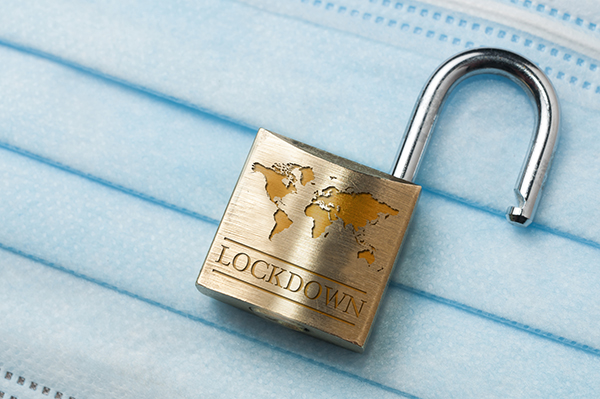
Hipkins spoke about New Zealanders maintaining proper social distance when he made the blunder. "It is a challenge for people in high-density areas to get outside and spread their legs when they are surrounded by other people," he said during the press briefing. Hipkins meant to say "stretch" instead of "spread," but it was too late when he realized he uttered the wrong word. He bumbled through the rest of his statement following his slip of the tongue.
The minister's response did not go unnoticed by Director-General of Health Ashley Bloomfield, who was standing next to Hipkins. Bloomfield raised his eyebrows and smirked following Hipkins's gaffe. Hipkins later corrected himself with a chuckle – saying he would go and "stretch his legs." He continued that the media "would all have fun with him later."
Later that day, Hipkins took to social media and posted a photo poking fun at his own gaffe. The picture had this caption: "That moment when you realize that what you had intended to say and what you had actually just said weren't the same. At least I've given you all something to laugh about."
True enough, Hipkins's slip went viral on social media – with many New Zealanders on Twitter poking fun at the blunder. One user tweeted: "Keep socially distanced when out spreading your legs." Another user wrote: "Chris Hipkins accidentally saying 'spread their legs' instead of 'stretch' is exactly what we needed today."
New Zealand's COVID-19 lockdowns are no laughing matter
Even though Hipkins's blunder gave New Zealand something to laugh about, it did little to change the heavy mood in the country following a nationwide lockdown. Authorities imposed a lockdown following the spread of the highly infectious B16172 delta variant.
Before the August 2021 lockdown, New Zealand had been lauded for its virus-free status since February. Since the start of the pandemic in 2020, New Zealand only saw 26 deaths due to COVID-19. Prime Minister Jacinda Ardern received praise from many countries across the globe for her handling of the pandemic.
However, the entry of the delta variant in New Zealand put Ardern's approach under scrutiny. Initially, one COVID-19 case from the delta variant was first reported on Aug. 17. The strain first reported in India spread fast in the country, with more than 100 cases being recorded on Aug. 23.
Also on Aug. 23, Ardern extended the country's nationwide lockdown by three days – until midnight on Aug. 27. The lockdown in Auckland – New Zealand's largest city and the epicenter of the current COVID-19 outbreak – was also extended until Aug. 31. (Related: RESISTANCE IS FUTILE: New Zealand extends repressive COVID-19 lockdown to give government more time to vaccinate entire country.)
The prime minister told reporters during a news conference at the capital Wellington: "We don't yet believe that we have reached a peak of this outbreak, or necessarily the edge of it. That does mean the safest option for all of us right now is to hold the course for longer."
Ardern also defended her use of lockdowns to address COVID-19 during the same press conference. "For now, everyone is in agreement … [that] elimination is the strategy. There is no discussion or debate among any of us about that, because that is the safest option for us while we continue to vaccinate our people," she said. (Related: New Zealand promises to HUNT PEOPLE DOWN for not submitting to covid-19 vaccinations.)
Victoria University of Wellington political analyst Bryce Edwards said Ardern's government is being judged differently in how it responded to COVID-19 in 2021 compared to the previous year. "This time around, people are much more skeptical about how the [Ardern] government has been handling all of the COVID-related issues," he said.
Based on data from Johns Hopkins University, New Zealand recorded a total of 3,160 COVID-19 cases and 26 deaths.
Pandemic.news has more articles about New Zealand's response to the COVID-19 pandemic.
Sources include:
Please contact us for more information.























